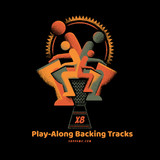How to Write Drum Beats and Drum Notation
Once you have decided to become a drummer, you have opened yourself up to a world of creativity. Many beginning drummers spend hours learning to play their favorite songs by other artists and practicing basic drumming fundamentals. Eventually, though, a drummer is likely to want to branch out and learn how to write drum beats. There are a couple of ways to go with this and each is determined by the drummer’s ultimate goal.
Of course, there is a formal way of learning drum beats. This is where the drummer actually learns to read and play drumming notation. While this is not necessary for every drummer, certain musicians will find it useful. If a drummer has aspirations of playing in a marching band or with an orchestra, then that person will benefit greatly from learning to read music. Once a drummer has grasped the basics of drumming, writing beats should not be that difficult. Simply play out a beat and write it down using the proper notation.
Now, when learning how to write drum beats, it is a good idea to already know some basic beats for the genre you prefer. Every drum and every music genre have basic rhythms that are incorporated throughout the music and used as a foundation for composition. Practice listening for these rhythms and beats, as well as playing them. It will help you become a better drummer and composer. The less formal method for writing drum beats includes creating your own notation and writing it down.
There may be as many ways to note drum beats as there are drummers. Basically, you will need to decide the code you are using and make it simple enough that you won’t forget should you put the composition away for a few years. Better yet, have a key attached to your compositions so that anyone reading your music can understand your style of writing. After you decide what letters or symbols will represent what sounds, play a rhythm and write it down. It really is as simple as that. Eventually, you will want to figure out how to write drum beats for emphasis and speed. Start out simply, though.

When you want to emphasize a note, create a way of writing that. Perhaps you underline or circle notes that need to be played louder. It is up to you. Your only limitation is your imagination. Writing drum beats need not be a complicated matter. No matter what type of notation you use, self-created or formal, a drummer who wants to play your music will figure out how to read your composition. Just don’t let all that great music in your head go to waste.
Recent Posts
-
X8 Drums Play-Along Backing Tracks
The new X8 Play-Along Series is being produced for our musician friends wanting a fresh way to work …9th Feb 2025 -
What is the Best Size Djembe for Beginners?
If you're new to the world of percussion and interested in learning the djembe, you're in for a t …16th Jul 2024 -
The Benefits of Becoming a Drumming Teacher: Transforming Passion into Profession
Why become a drumming teacher? Becoming a drumming teacher is an excellent way to share your pas …22nd May 2024




